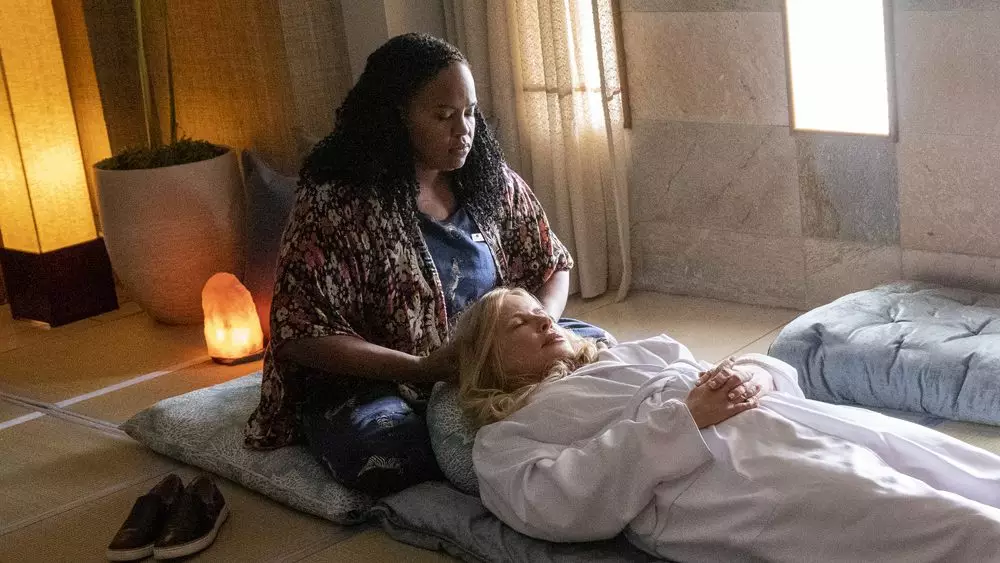In the ever-evolving landscape of television, few journeys are as intriguing as that of Natasha Rothwell. The actress, who gained widespread recognition for her role as Belinda Lindsey in HBO’s acclaimed series “The White Lotus,” is gearing up for a significant next step. With the announcement of her return to the series for a third season, set to take place in Thailand and premiere in 2025, Rothwell is simultaneously launching her own comedy series, “How to Die Alone,” on Hulu. This dual engagement not only highlights her versatility as a performer but also her growth as a creator in the industry.
The correlation between Rothwell’s previous experiences and her latest venture cannot be understated. As she embarks on this new creative journey, Rothwell emphasizes the importance of authenticity in storytelling. She remarks that the depiction of complex, real-life emotions is crucial, particularly for characters who are often pigeonholed based on societal expectations or racial stereotypes. Her insistence on authenticity stems from her desire to craft narratives that resonate with the multifaceted nature of human experience, especially for someone who shares her background.
Returning to a beloved character like Belinda comes with its own blend of excitement and trepidation. Rothwell likens the experience to slipping into a “wet bathing suit,” a metaphor that captures the initial discomfort that quickly transforms into a welcomed familiarity. This sentiment is particularly potent as audiences prepare to re-engage with Belinda’s story amidst a culturally rich and visually stunning backdrop of Thailand. Rothwell’s admiration for her collaborator, Mike White, adds a layer of appreciation to the process, as she recognizes the value of a trusted partnership in the unpredictable world of artistic expression.
What makes Rothwell’s reprisal of Belinda especially poignant is her commitment to fully showcasing the character’s emotional spectrum. Despite previously being typecast into roles that leaned heavily on her comedic strengths, her portrayal in “The White Lotus” has allowed her to break free from those constraints. The series provided a platform for Rothwell to explore the depth and nuances of her character, enabling her to demonstrate that she can embody both comedic and serious tones with equal conviction.
In “How to Die Alone,” Rothwell takes on the dual role of star and creator, portraying Mel, a JFK airport employee navigating life’s complexities. The premise places Mel at a crossroads, facing a near-death experience that ultimately propels her into a journey of self-discovery and empowerment. Here, Rothwell draws from her extensive writing experiences, particularly her work on “Insecure” and “Saturday Night Live.” This creative evolution is not simply a personal triumph; it reflects her desire to influence the representation of women in comedy and storytelling.
Rothwell’s unique perspective as someone who has been both in front of the camera and behind the scenes enhances the authenticity of her narratives. By fostering diverse voices in her writers’ room and emphasizing collaborative storytelling, she is reshaping the landscape for future projects. Acknowledging her influences, especially from Issa Rae, Rothwell aspires to replicate successful elements while carving her own identity within the industry.
Conclusion: An Empowered Voice in Comedy and Drama
As Natasha Rothwell prepares to embrace a character she’s come to adore and unveil a new facet of her artistry, her journey serves as an embodiment of what it means to be genuinely multifaceted in an industry that often prioritizes niche storytelling. With the return of Belinda in “The White Lotus” and the debut of “How to Die Alone,” audiences can anticipate a rich tapestry of narratives that capture the full spectrum of human experience. Rothwell’s ethos of authenticity and representation will undoubtedly resonate, paving the way for a new generation of storytellers and performers who dare to defy conventional boundaries. This powerful blend of passion and commitment to character development marks an exciting new chapter in her already dynamic career.

Leave a Reply